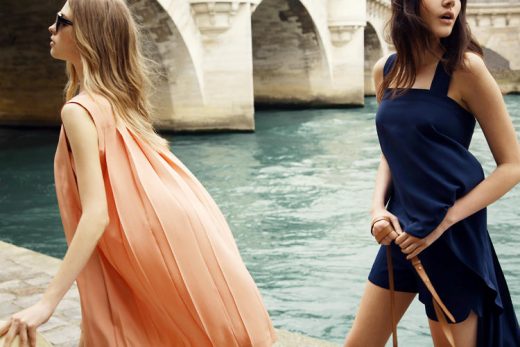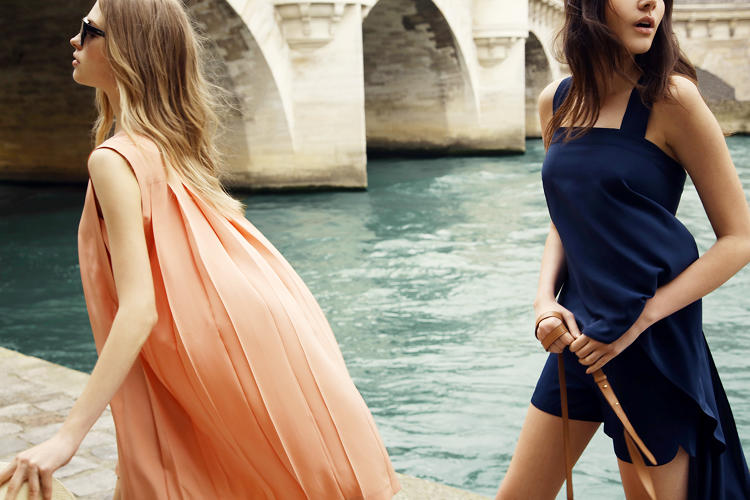Cuyana: The Clothing Brand That Plans To Scale By Asking Women To Buy Fewer Things
There’s a little factory the countryside of Northern Italy that has been making leather products for three generations. The family who owns the facility has a close relationship with a nearby tannery, so their workers understand the idiosyncrasies of these particular cowhides: they know exactly how sunlight will darken soft vachetta leather, which sections are best used for belts, and which bits are so thin that they should be discarded. In the United States, craftsmanship of this quality is usually associated with pricey luxury brands like Hermès and Celine, where a leather bag can cost upward of $2,000.
But the cofounders of Cuyana, Shilpa Shah and Karla Gallardo, thought there must be a way to make high-quality goods available at lower prices.
The duo started looking for an advantage that would break them into the traditional retail supply chain. It’s no secret that companies across the fashion spectrum, from fast fashion like Forever21 to designer brands like Tory Burch had moved their production to factories in Asia. And to be more efficient, these factories allow companies to consolidate all of their manufacturing—from bags to clothes to shoes—into a single location. Workers at these factories must be very nimble, learning to switch back and forth between different materials, while churning new products out at a very fast rate.
Shah and Gallardo decided to launch a startup that re-imagined the existing manufacturing process. With a round of angel investment, they spent two years traveling the world, visiting small workshops that specialized in particular materials, such as the factory in Italy. They found Scottish cashmere experts, Turkish canvas makers, Argentine leatherworkers and Peruvians with deep expertise in Pima cotton. They then designed handbags, small leather goods, and clothes in classic styles and made them from end-to-end in each of these countries.
“What you’re looking at is a difference between factories that have grown through generations with expertise in certain materials versus larger factories that use a lot of machinery to make many materials,” Gallardo says. “And that attention to detail is very important to keep a product pristine through the years.”
But even though they had a clear vision of the products they wanted to make, their business strategy was a tricky one. Rather than producing the cheap, replaceable items that consumers were searching for, they had to cultivate a new kind of consumer. One who would understand that having a full closet with too many different options is not necessarily better than one with fewer, more expensive items that they really love.
If they could successfully alter their customer’s tastes—and that’s a big if—they would have a massive new business opportunity.
Their plan is off to a good start. Five years on and Cuyana has secured three rounds of funding, and grown to over 40 employees.
They’ve also helped to pioneer a new trend in shopping, which they describe as the “lean closet” movement. Gallardo came up with the brand’s motto, “Fewer, Better Things,” as she thought back to her childhood in Ecuador. She remembers how precious her possessions were to her as a little girl. Most people around her didn’t have much disposable income, so they only bought things they truly needed or loved. Gallardo’s parents were very intentional about every purchase. Before buying a bag, for example, they would contemplate whether it was well-made and durable, perhaps even long-lasting enough to pass on to the next generation.
A decade later, when Gallardo came to college in the United States, she was practically pelted with clothes, shoes, and bags, much of it so inexpensive, even a poor student could afford it. But paradoxically, she did not find shopping to be a particularly fulfilling experience. Most of the products available in stores seemed designed to be disposable, and well-made items were considered luxury goods, with inaccessible price tags.
Cuyana promotes a minimalist lifestyle, encouraging women to only own items they truly love. With every purchase, customers have the option of receiving a bag to donate things in their closet they no longer want in exchange for store credit. Gallardo and Shah were tired of the rampant consumerism in American culture, and believed that other women must be too. Their brand is pushing back against the excessive, thoughtless shopping that is promoted by brands that churn out $2 T-shirts and $5 jeans.
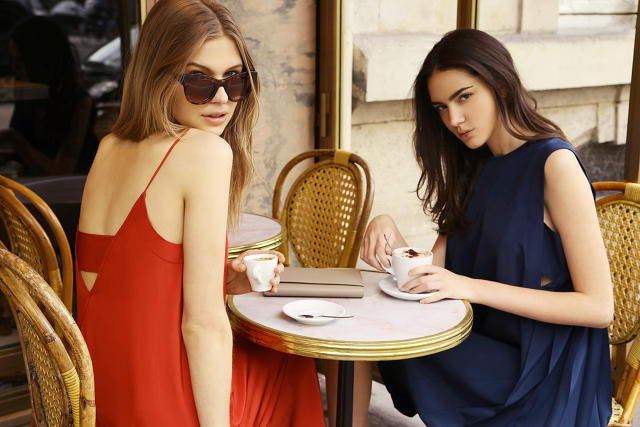
At the same time, Japanese organizational guru, Marie Kondo, whose book about the wisdom of decluttering your home—and especially purging your closet—caused a global sensation and prompted many American women to dramatically reduce their wardrobes. Last month, a new app called Capsules launched, helping women cull down their wardrobe to 35 items.
On first blush, being an e-commerce company that encourages women to buy fewer things might seem like a bad business strategy. But the founders have discovered that their model includes efficiencies that make the company attractive to investors. They save money by manufacturing in small factories that do not require enormous minimum order quantities. When they roll out a new product, they essentially “beta-test” it by making a small batch to see if it sells before placing a bigger order. “At bigger factories, companies are mandated to buy so much more than then need to sell,” Shah says. “A lot of it ends up being liquidated.”
Cuyana also cuts down on product development costs by selling a curated selection of classic products rather than launching dozens or hundreds of products every season, like other fashion brands. Cuyana produces a couple of new bags and clothing items each season, or they make the same best-selling item in a few new colors. In the end, they are able to price their products only slightly higher than those at fast fashion brands, but significantly lower than similar items at luxury designers: A leather tote bag costs $175, a weekender costs $150, and a cotton shirt costs $40. They’ve found that this business case has gone over well with investors. By now they’ve raised at least three rounds of funding, some private, amounting to several million dollars.
But marketing these products to consumers is another challenge altogether. How would they get women who were so accustomed cheap, low-quality products to pay more for better quality? And how would they even demonstrate this quality online?
On the website, Shah and Gallardo have decided not to overload the consumer with too many details about the manufacturing process but to evoke a broader narrative of about the beauty of living a more minimalistic lifestyle, surrounded by a highly curated selection of well-made, luxurious things. Cuyana’s advertising often involves a woman standing in a field of flowers wearing a slip dress and clutching a bag, sometimes shot in black and white. Women who purchase Cuyana products are buying into to the story they are telling about simplicity and taste.
Shah says that it has been more effective for the brand to show, rather than to tell, their customers about why their brand is different. Even though the brand started as an e-commerce operation, they have been using their funding to build brick-and-mortar stores in San Francisco and Los Angeles, as well as pop-up shops such as the one currently in Washington, D.C. A woman might decide to splurge on a $135 Italian-made clutch bag, which might be more than she is used to paying. But Cuyana is counting that after she sees how the bag feels different from other products she owns, she will come back to buy other items.
“A lot of our customers don’t understand quality,” Shah says. “They might be aspirational buyers who shop at Zara. But they come through the door intrigued by our philosophy and they see the difference in our products, so they become educated that way.”
related video: learn more about the life-changing magic of lean living from the master of it, Marie Kondo
Cuyana, whose motto is “Fewer, Better Things,” was founded in 2011.
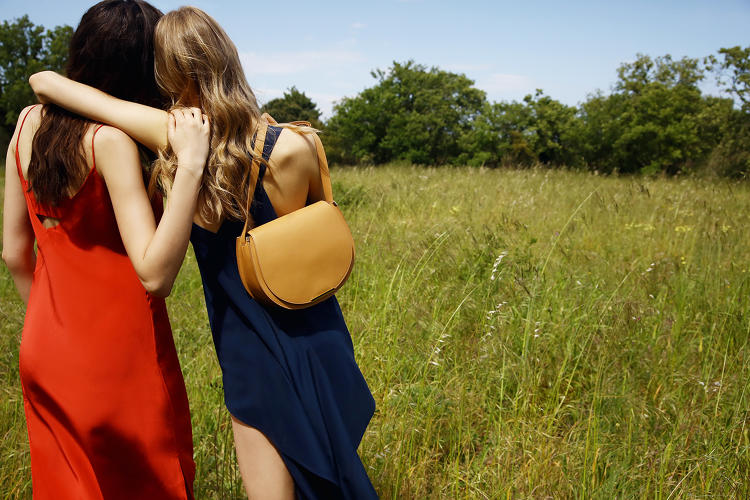
The trend coincided with the rise of Japanese organizational guru Marie Kondo, whose book about the wisdom of decluttering your home–and especially your closet–caused a global sensation.

To create high-quality items, Cuyana’s founders searched for workshops around the world where craftspeople are experts at specific materials.

To ensure that products are priced affordably, they sell directly to consumers, without a huge markup.

By working with smaller factories, they can place smaller orders and avoid waste.
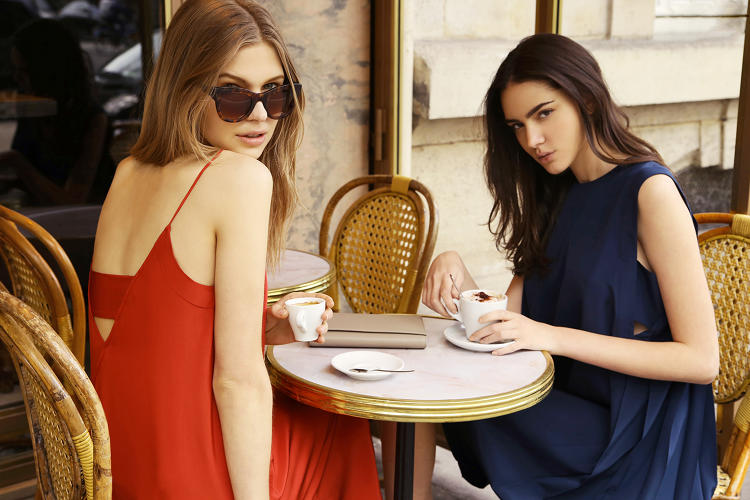
This business model has been deemed viable by investors. They have raised three rounds of capital so far.
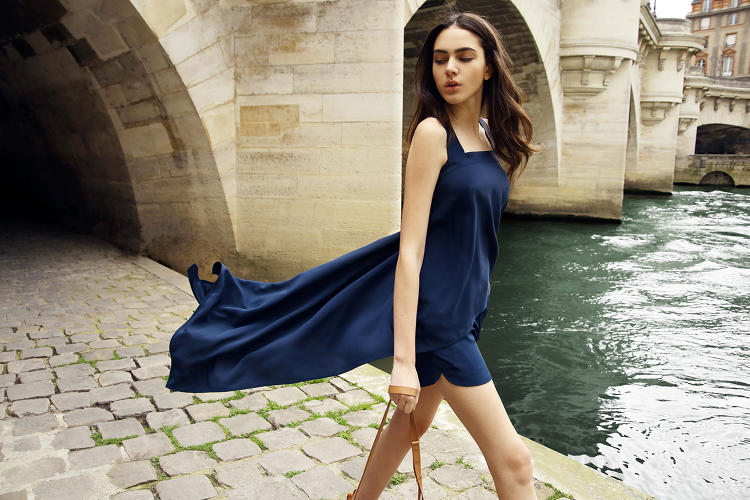
The brand has grown considerably over the last five years, as women have rejected fast fashion in favor of better quality.

Fast Company , Read Full Story
(61)

